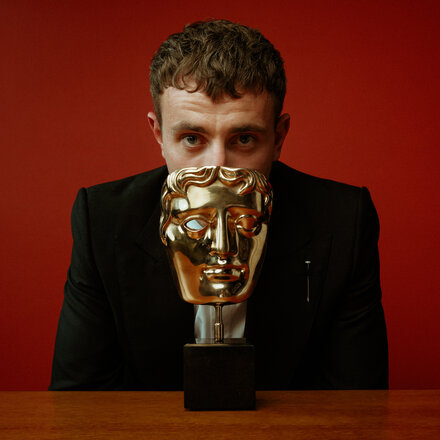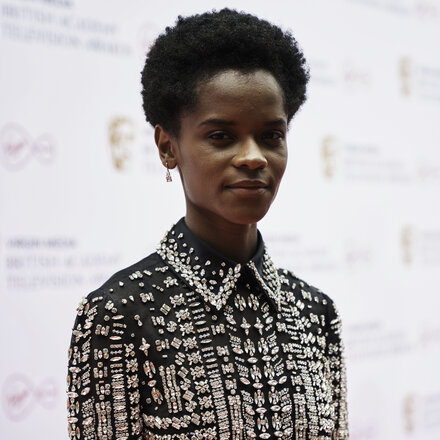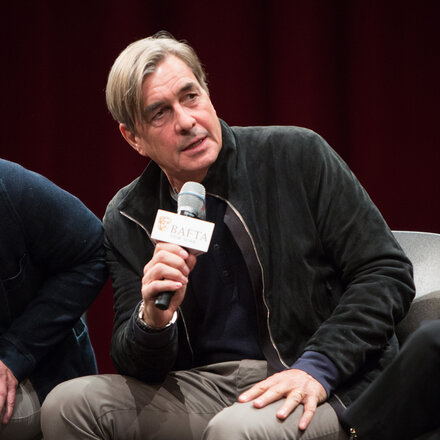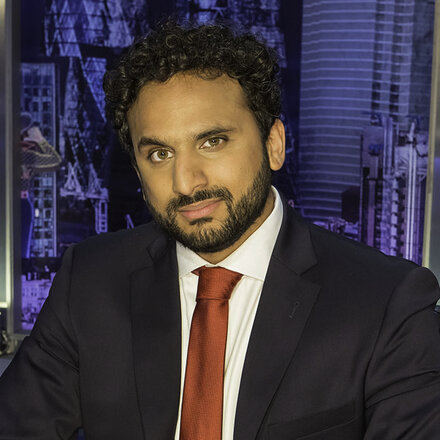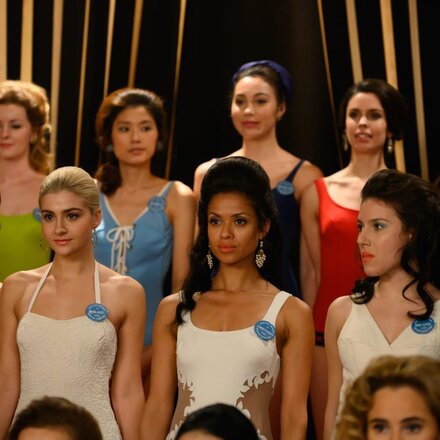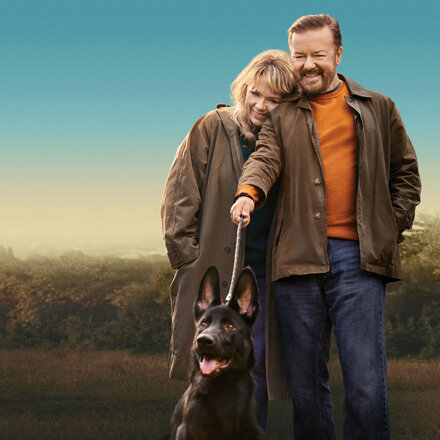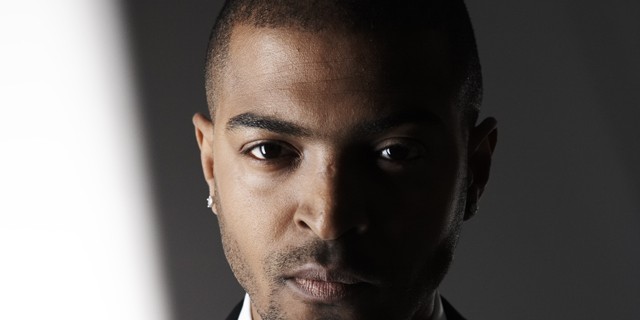
Noel Clarke: Interview
The actor and filmmaker discusses his career to date, from early successes with Doctor Who and Kidulthood, to latest projects including Storage 24, and upcoming features The Knot and the Star Trek sequel.
Published on 3 July 2012.
Words by Quentin Falk.
Noel Clarke’s production company is called Unstoppable Entertainment, and a quick glance at his current work rate would suggest that it is exceedingly well named. But if you also thought the 36-year-old Londoner was perhaps getting just a little ahead of himself, he quickly and rather disarmingly undercuts any such idea.
“Unstoppable? I kind of did that on purpose not because I necessarily believed that, but because, to be honest, I thought it would annoy a lot of people,” he chuckles, mischievously.
Clarke, who in 2008 won BAFTA’s Orange Rising Star Award, is, four years on, now firmly established as what Hollywood might describe as a ‘quadruple threat,’ working not only as an actor, but also, on occasion as a writer, producer and director.
He wears three of those four hats for Storage 24, a sci-fi horror with a streak of black comedy, and again for The Knot, a ripe marital comedy – in The Wedding Crashers/Hangover tradition, he promises – while Fast Girls sees him doubling as merely screenwriter and co-star.
Clarke first became known as an actor, principally in Doctor Who as the nervous boyfriend of the Doctor’s companion Billie Piper. His high-profile stint in the successfully revived TV series also coincided with a role in the hugely successful low-budget urban drama, Kidulthood, directed by Menhaj Huda, for which he also wrote the original screenplay.
"Unstoppable? I kind of did that on purpose not because I necessarily believed that, but because, to be honest, I thought it would annoy a lot of people."
“If I were just an actor,” Clarke now muses, “I’d be homeless, so I was forced to start writing. I enjoy it, but it comes from necessity. When my friend Huds didn’t want to direct Adulthood (again written by Clarke, reprising his role from Kidulthood), it looked as if the film might not happen. Then someone on the UK Film Council said to me, why didn’t I direct it? Basically, if I didn’t do it, there would be no film.”
Adulthood also turned out to be a sizeable low-budget hit, punctuated by various acting-only jobs, to his directing the diamond-smuggling caper, 4.3.2.1. Unstoppable was now off and running.
If, as he suggests, he has taken on increasing behind-the-camera responsibilities in order to maintain a forward momentum with his career, he would cite writing as “probably my least favourite” of the four.
“I love creating stuff but the consequence of that is that you then have to write it. With directing as with the acting, you’re there on the set either composing a shot or working with the other actors. When you write, you’re usually on your own. The kids are at nursery, my wife is at work and I’m writing hours a day, constantly. It’ll maybe get to the point when people then say, ‘We don’t like it’ and then it doesn’t even get made.” Frustrating.
“If I were just an actor I’d be homeless, so I was forced to start writing. I enjoy it, but it comes from necessity."
Clarke’s stock has, however, now risen to the point where he can keep a small production team around him. So, when he and his wife were suddenly struck one day by the inherently eerie possibilities of mayhem ensuing inside of those ever-proliferating storage facilities (the ones with big yellow doors) – corporate Unstoppable swung into action.
After he’d written the first draft of Storage 24, he then handed it over to two writers, Davie Fairbanks and Marc Small, whom he’d been mentoring for a while. After they’d taken a pass at it, it was time for signed-up director Johannes Roberts to contribute his vision. Once their writing collaboration had gelled, the project moved into production.
“Am I then able to stand back? Absolutely. You can’t hire a guy to do a job and then not let him do it. If you have opinions, then make sure they’re made known in ‘prep.’ If the other actors ask if they can change a line, I always tell them they must ask the director.”
Clarke admits that sometimes changes have to take place out of necessity, as was the case with the very final scene in Storage 24. “I originally wanted to have a 60-man SWAT team surrounding the place. The fact is we couldn’t afford to do that – 60 extras with fake guns and armour.” The solution was a very elaborate effects shot, which turned out not only to be a cheaper, possibly “cooler” alternative but also suggests sequel possibilities if the film turns out to be a hit.
"Filmmaking is not just about pretty moving pictures, it’s about being able to tell a story with your cast and visuals. Some directors are great visually but can’t tell a story. That’s the one thing I think I can do."
As a self-confessed sci-fi fan – his tastes within the genre range from Alien to E.T. – Clarke must also have been somewhat overwhelmed when he was suddenly summoned to audition for JJ Abrams’ Star Trek sequel. The result was three months in Hollywood together with his family, as he became one of a select band – including another Enterprise resident Simon Pegg – who have appeared in both Doctor Who and Star Trek, arguably the two most popular sci-fi franchises of all time.
A non-disclosure agreement prevents him from saying much more than, “I just watched and learned. I nodded, smiled, was as polite as I could be and then came home. You never quite know what the budget is for that kind of thing but you have an idea. I think I could probably make 120 films for that,” he laughs.
Clarke has well and truly acquired the taste for directing and clearly hopes that Unstoppable will prove a suitable conduit for likely projects including “a really intense thriller” he’s currently developing.
To aspiring filmmakers, he offers this: “Make sure that at all times you get the meat-and-potatoes of your scene. If you had to tell the scene in just one line, what’s the line you’d choose because everything else is just fluff? Filmmaking is not just about pretty moving pictures, it’s about being able to tell a story with your cast and visuals. Some directors are great visually but can’t tell a story. That’s the one thing I think I can do.”
"It really gave my career a much needed boost. Those others were all much more industry people and probably didn’t need it as much, and they’re all now doing Hollywood movies consistently."
When asked to recall scenes of which he’s proudest or the hardest to direct, he cites his feature debut, Adulthood, on both counts. “There were scenes in that – with my mother and girlfriend – where the film really slows down. The audience for that kind of film is quite alpha-male-ish and just wants high-paced, swinging bat-type action. I was anxious to try and draw them in and just get them to listen. Here you had a guy crying, being punched in the stomach and left on the ground. Trying to tread that fine line was very difficult; you could lose the men quite easily.”
It’s intriguing to think back to that Rising Star Award and consider just who Clarke pipped to the prize at the time – Michael Fassbender, Michael Cera, Rebecca Hall and Toby Kebbell, all of whom have since blossomed.
Says Clarke: “It really gave my career a much needed boost. Those others were all much more industry people and probably didn’t need it as much, and they’re all now doing Hollywood movies consistently.
“What was really important to me was that it was the people who voted for it. If there’s anyone who has more regular joes on their team then it’s me, whereas those guys have real industry clout and the chops which I really don’t believe I have as yet.”
* Storage 24 and Fast Girls are on general release; The Knot is due out in the autumn; the Star Trek sequel is set for May 2013

